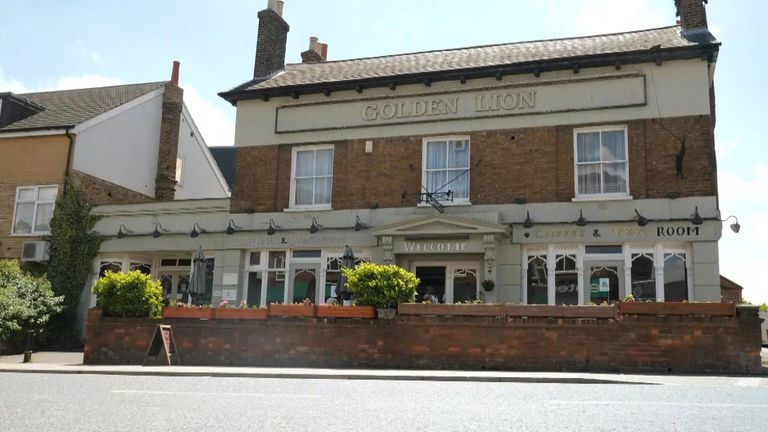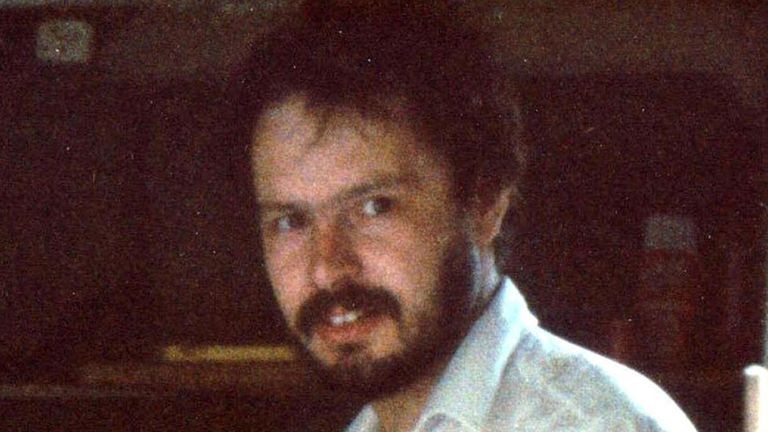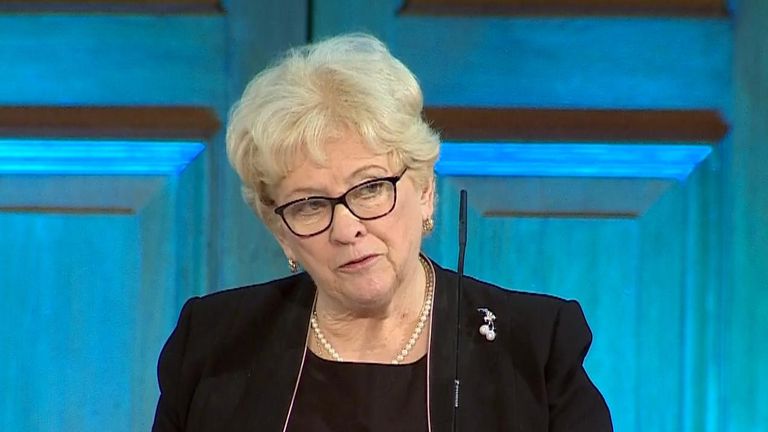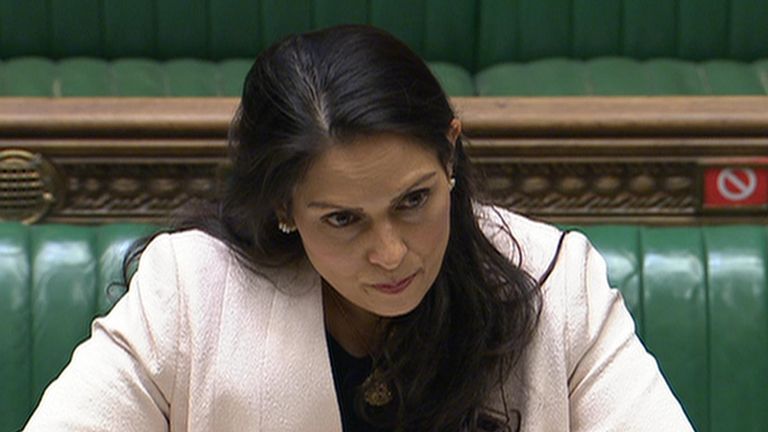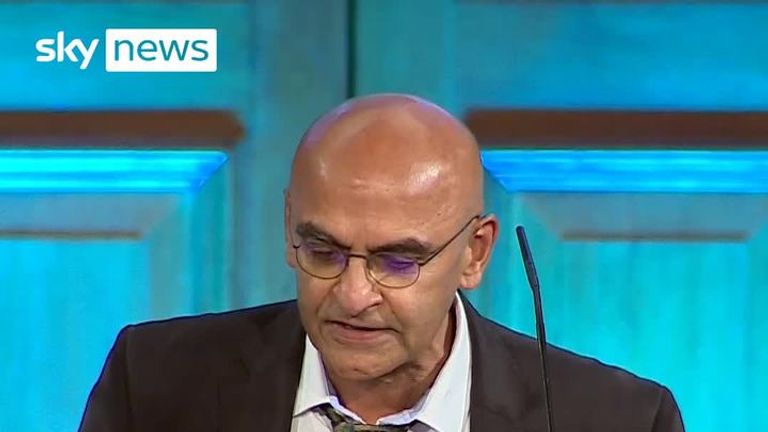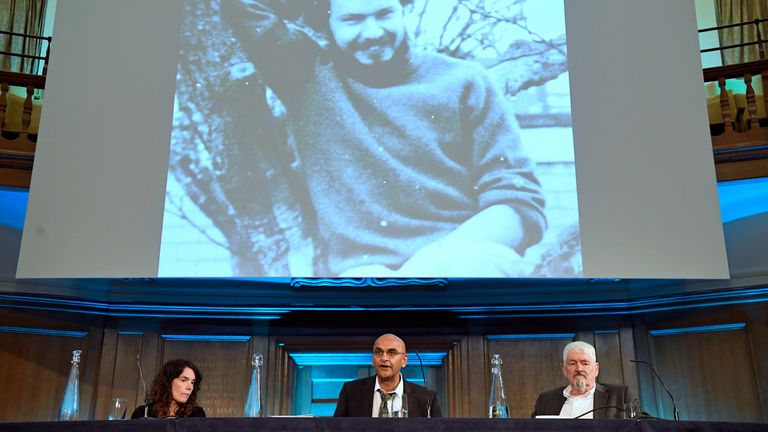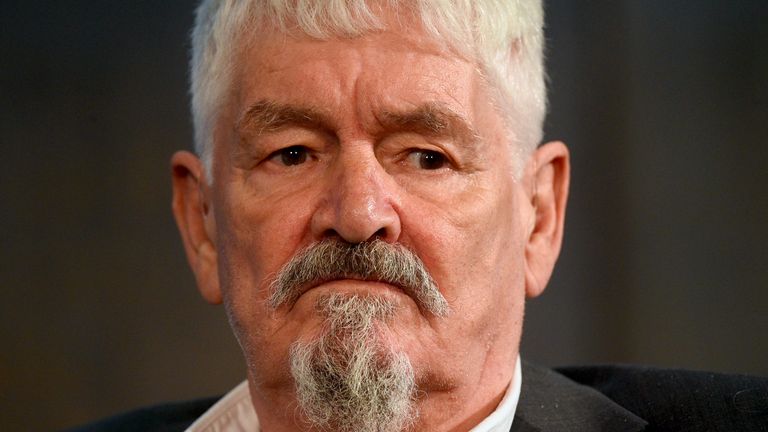Daniel Morgan: Key points from damning report into unsolved axe murder of private detective
The unsolved murder of private detective Daniel Morgan is one of the UK’s most notorious cold cases – and the damning report into the failed police investigations has been eight years in the making.
Despite five police inquiries and an inquest, no-one has been brought to justice over the axe killing of the father-of-two in 1987.
An independent panel examining Mr Morgan’s death has now accused the Met Police of “a form of institutional corruption” over its handling of multiple failed investigations.
Here are the key points from the panel’s 1,251-page report.
‘Significant failings’ in initial investigation
Mr Morgan was murdered with an axe in the car park of the Golden Lion pub in Sydenham, southeast London, in March 1987.
The panel found there were “multiple very significant failings” in the investigation from the moment his body was discovered.
The handling of the murder scene was “totally inadequate”, it was not searched and it was left unguarded, the panel said.
There is evidence that some of those arrested in connection with the murder in April 1987 may have been alerted the day before by a leak to the media, it found.
Alibis were not sought for the suspects, search warrants were “seriously inadequate” and lines of inquiry were “not followed through properly”.
“Many of the opportunities which were lost were not retrievable”, the report said.
‘Inaccurate’ coroner at inquest into Morgan’s death
An inquest in April 1988 heard evidence from a man who claimed Mr Morgan’s business partner Jonathan Rees had asked him if he knew anyone who could kill the private detective.
Kevin Lennon also claimed Mr Rees had told him in 1986 that Catford police officers would carry out the murder of Mr Morgan or arrange it, and that Detective Sergeant Sidney Fillery was “quite aware” that Mr Morgan was going to be killed.
The panel noted: “Despite this, the coroner said, inaccurately, that he had heard no evidence whatsoever to point to any police involvement in the murder, and that no stone had been left unturned during the investigation.”
However the independent panel said it had not found enough evidence to prove police involvement in Mr Morgan’s death.
Mr Rees was twice charged with Mr Morgan’s murder – once in 1989 when the case was dropped, and again in 2008, when Mr Fillery was charged with perverting the course of justice as part of the same prosecution. That case collapsed in 2011.
Evidence of police involvement in murder ‘not pursued’
A second police investigation into Mr Morgan’s murder was conducted by Hampshire Constabulary in 1988.
The panel found the investigation “did not pursue, to the fullest extent possible, evidence that serving or former police officers were involved in the murder”, or whether they committed crimes unconnected to the killing or had been guilty of disciplinary offences.
There was “some evidence that this was deliberate conduct” on the part of the Hampshire investigation, it added.
‘Close association’ between officers and ‘individuals linked to crime’
There was evidence of a culture within the Met Police in 1987 which allowed a “very close association” between officers on the team investigating Mr Morgan’s murder and “individuals linked to crime”, the panel found.
It said there was “extensive evidence” of police officers drinking in pubs with DS Fillery and Mr Rees, even after both had been arrested and were suspects in Mr Morgan’s murder.
There was also evidence that the murder investigation was discussed and that Mr Rees used the pub meet-ups to obtain information about the probe, the report said.
The panel said there had been suggestions since 1987 that Mr Morgan was going to sell a story about police corruption to the media – but the nature of the corruption was never established.
It was possible that officers involved in “lucrative corrupt practices”, such as helping criminals with inside information, feared their careers and pensions were under threat by Mr Morgan’s alleged intention to reveal what he knew, the report said.
Evidence supporting this theory in Mr Morgan’s murder was “never seriously investigated” – despite several officers connected to the private detective’s circles being convicted of serious crimes in the years after his death, according to the panel.
Officers’ links to Freemasons ‘source of recurring suspicion’
The panel said a “source of recurring suspicion and mistrust” in the investigations into Mr Morgan’s murder was “police officers’ membership of the Freemasons”.
DS Fillery was a Freemason and became master of two different lodges in 1993 and 1996, while 10 police officers who were prominent in investigations into Mr Morgan’s murder were Freemasons, according to the report.
The panel said: “Investigating officers entertained doubts as to whether Masonic loyalties, which all Freemasons swear to uphold, might conflict with those which police officers owe to each other and to the public by virtue of their office”.
However the panel said it had “not seen evidence that Masonic channels were corruptly used in connection with either the commission of the murder or to subvert the police investigations”.
Met Police accused of ‘institutional corruption’
Scotland Yard had previously admitted corruption was a “debilitating factor” in the original investigation into Mr Morgan’s murder.
But the panel said when it was asked the force what corruption it had identified, “no response was received other than that, in instances where individual police officers had accepted or conceded corruption in the case, any clarity required would have to be provided by those officers themselves”.
The report concluded: “The family of Daniel Morgan suffered grievously as a consequence of the failure to bring his murderer(s) to justice, the unwarranted assurances which they were given, the misinformation which was put into the public domain, and the denial of the failings in investigation, including failing to acknowledge professional incompetence, individuals’ venal behaviour, and managerial and organisational failures.
“The Metropolitan Police also repeatedly failed to take a fresh, thorough and critical look at past failings.
“Concealing or denying failings, for the sake of the organisation’s public image, is dishonesty on the part of the organisation for reputational benefit and constitutes a form of institutional corruption.”
Failure to properly investigate ex-senior officer over leak of information
The panel said in March 2011 it was discovered that former Detective Chief Superintendent David Cook had disclosed information about the Morgan murder case to a journalist without authorisation, some of which was “very sensitive”.
However the panel found the circumstances surrounding the leak of information were “not fully investigated” from 2011 to 2020.
Had it been properly investigated, the panel said it was “possible that there would have been compelling arguments as to why it would not have been in the public interest to prosecute former DCS Cook”.
The panel said it did not accept that the failure to properly investigate was a “mere accident or omission”.
“The failure of the Metropolitan Police to prevent DCS David Cook from removing materials over such a protracted time period causes concern as to the extent to which such behaviour may be continuing within the police service, unchecked,” it added.
Police ‘owe Morgan family an apology’
The panel said the trauma of Mr Morgan’s murder and his family’s grief had been “compounded by their treatment at the hands of some police officers and representatives of other organisations”.
The family had to “fight for information over decades and have been determined in their quest to get justice”, it added.
The report said: “Although there was some good family liaison work, those responsible for various police investigations and operations repeatedly failed to explain to the family what was happening, and they have had many dreadful shocks and almost constant frustration over the years. This led to increasing distrust in the police.”
Mr Morgan’s mother Isobel died in 2017 before the panel’s report could be published “which was a further cause of immense distress to her family”.
The report concluded: “The multiple police failures over many years, the death of witnesses and the passage of time mean that it is most unlikely there will be a successful prosecution for Daniel Morgan’s murder.
“Although much good work was done by police officers during the various investigations, an apology is owed by the Metropolitan Police and Hampshire Constabulary to the members of Daniel Morgan’s family, and to the public, for neither confronting systemic failings nor the failings of individual officers and for their lack of candour.
“In failing to acknowledge its many failings over the 34 years since the murder of Daniel Morgan, the Metropolitan Police’s first objective was to protect itself. In so doing it compounded the suffering and trauma of the family.”
Source: Read Full Article
